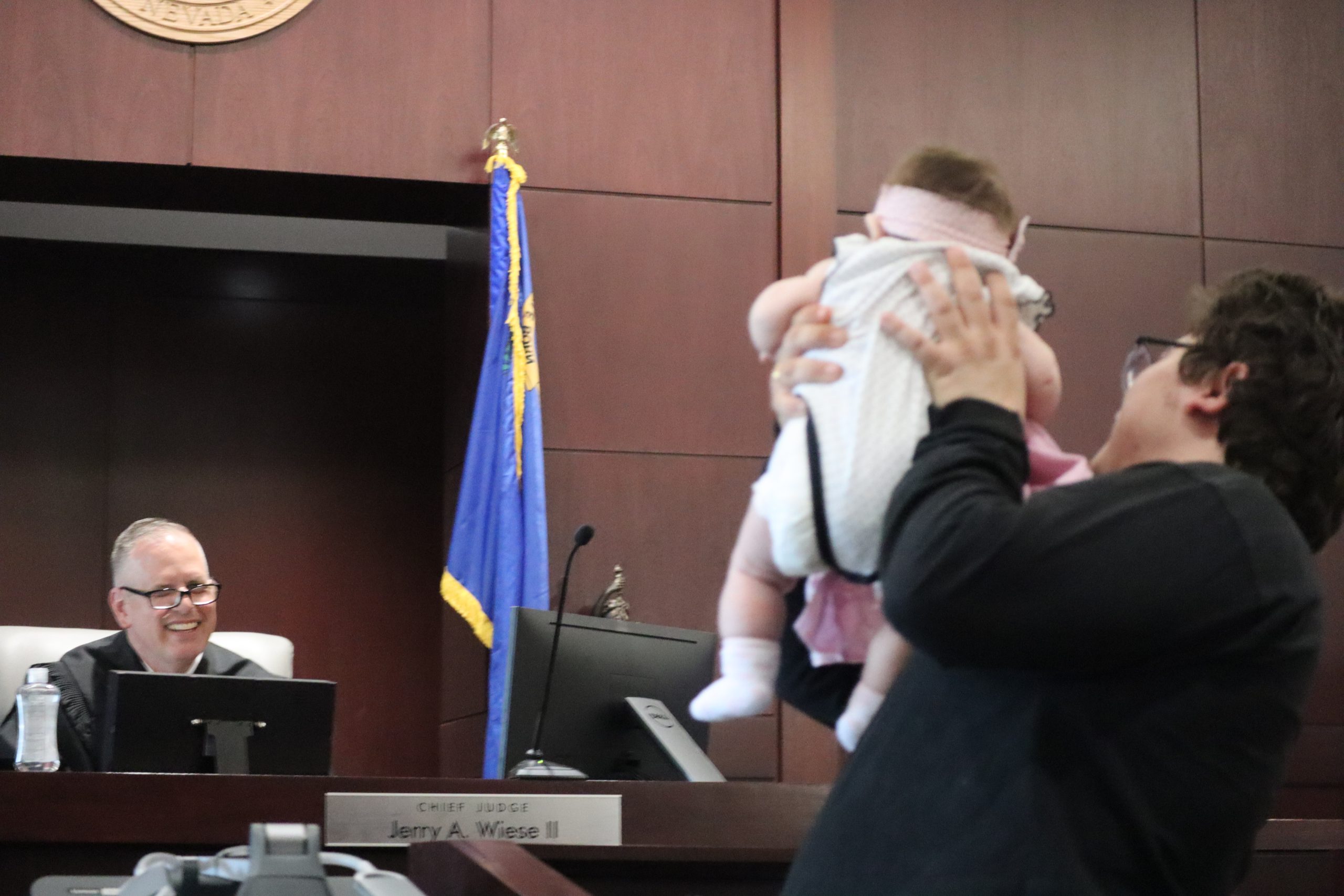
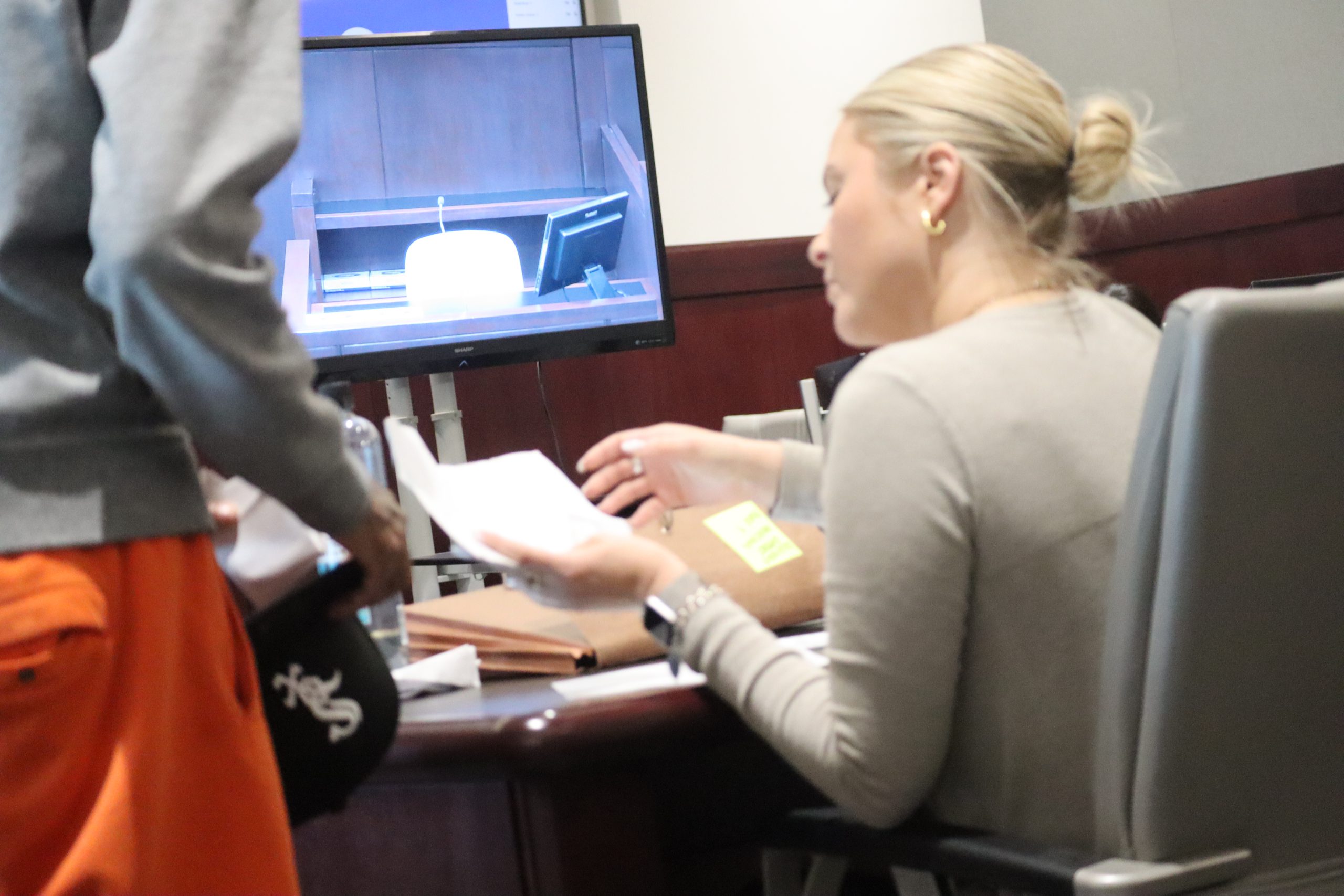
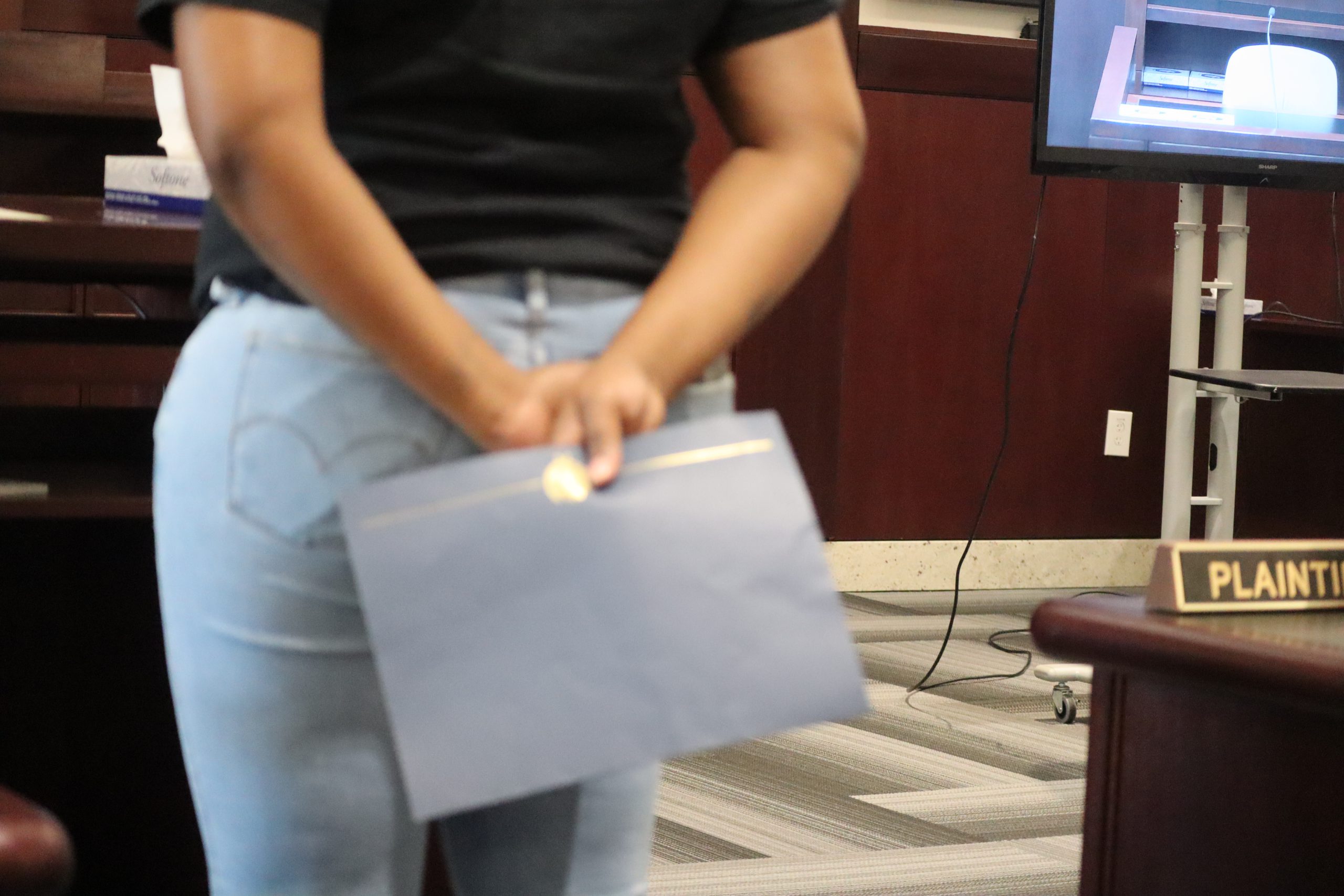
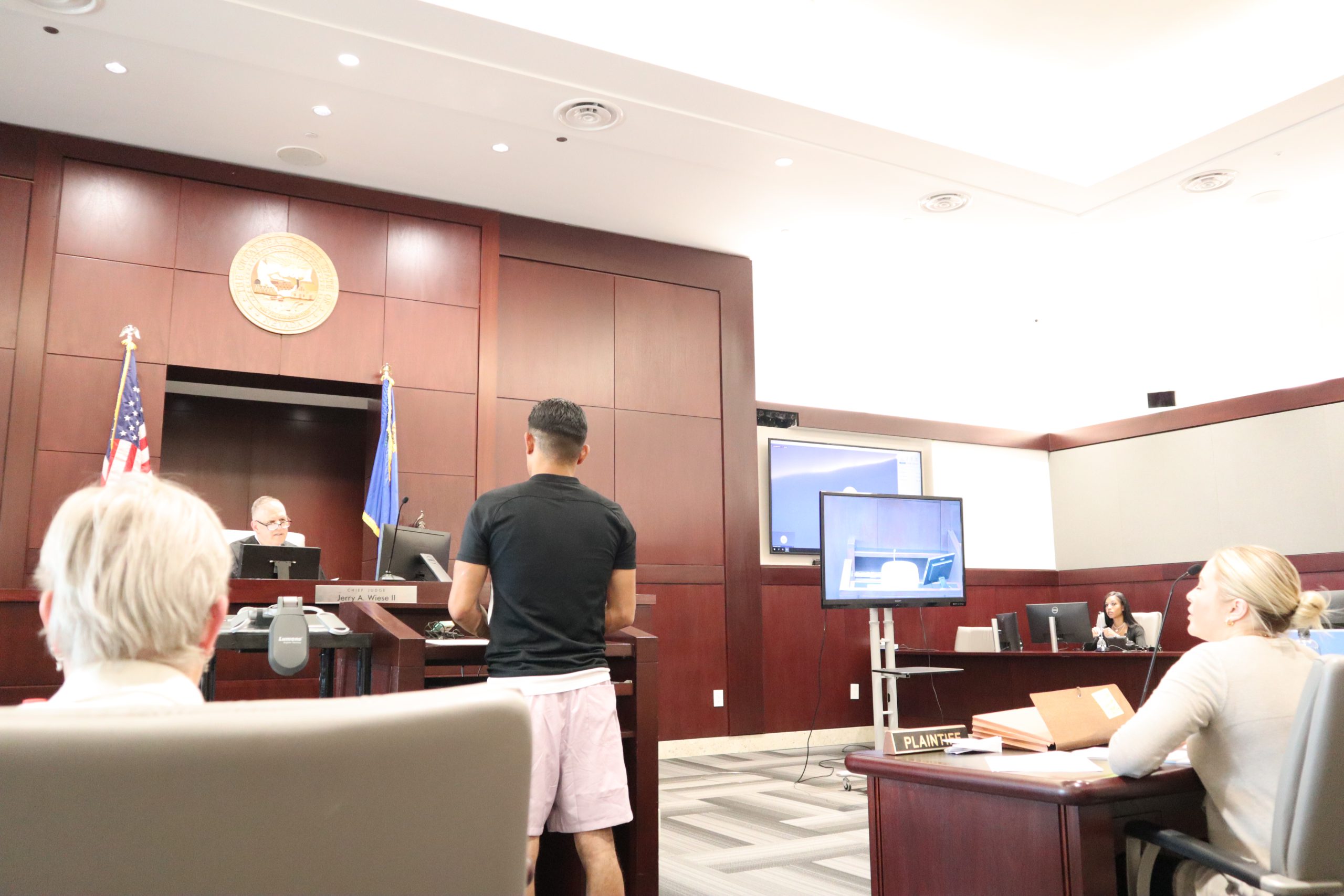
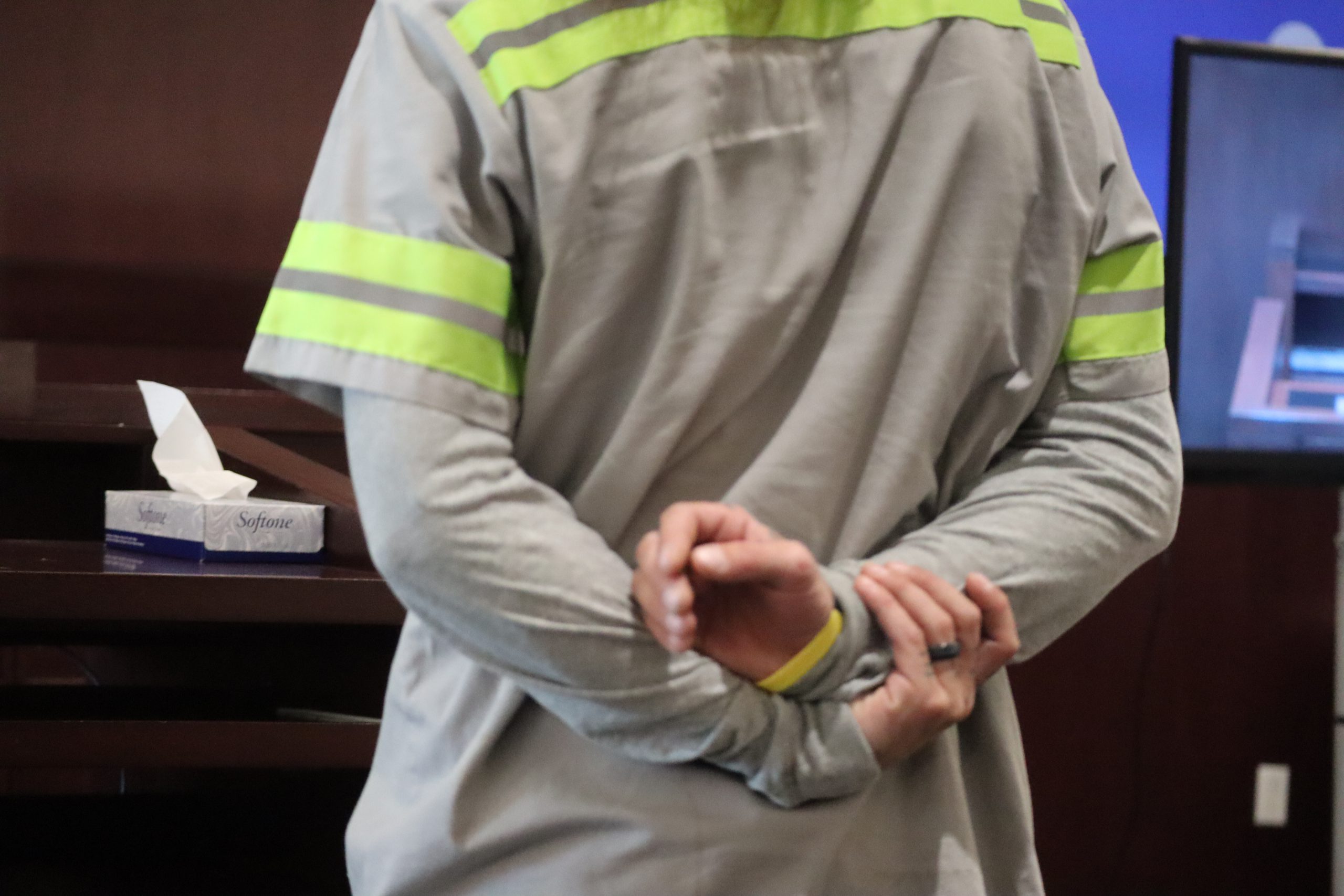
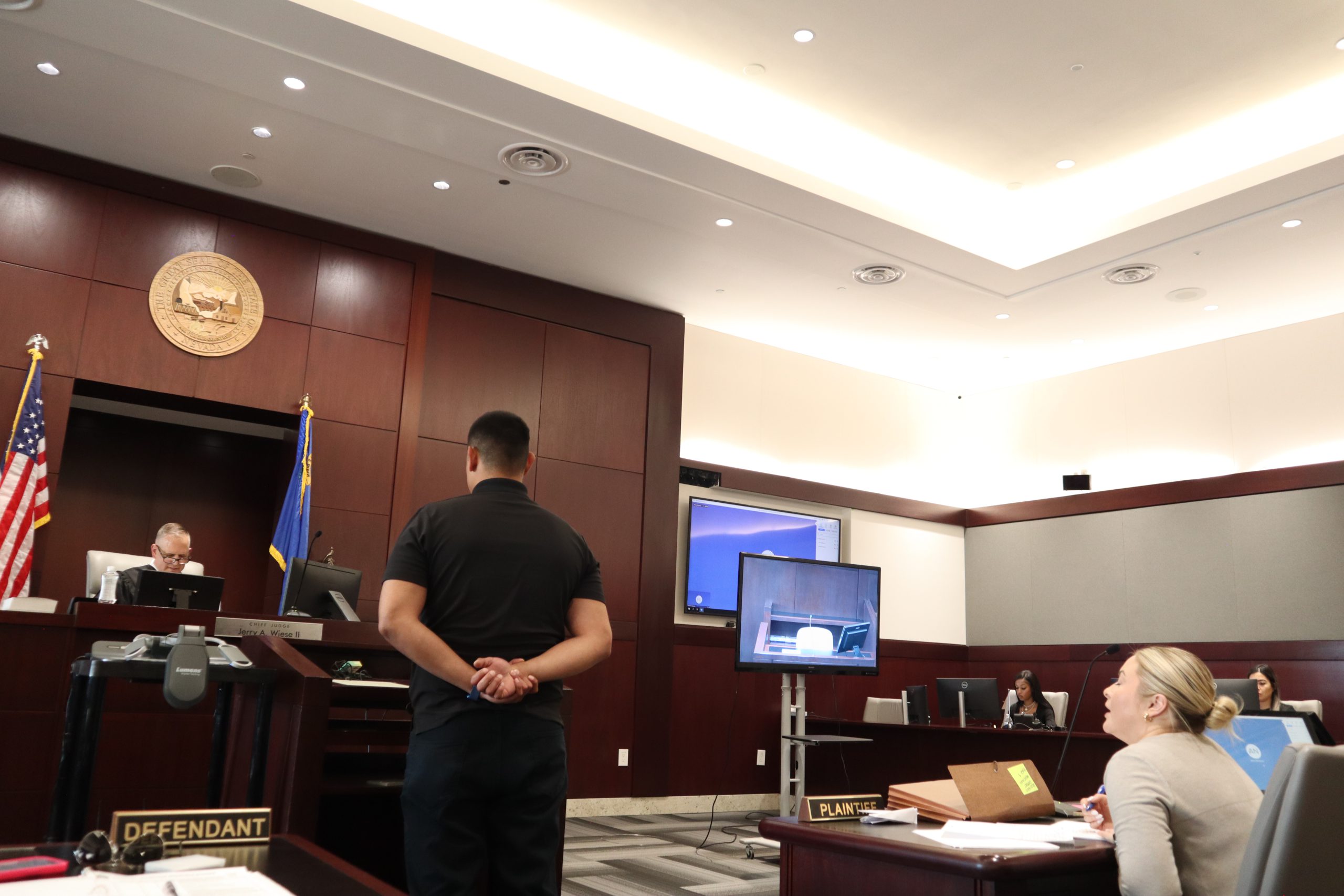
Examples of those who appear to be hopelessly addicted to drugs are everywhere. The impact to their family, friends and community is profound. The reported cost for incarceration in the Clark County Detention Center for one night is $245. The cost to families is immeasurable.
The Eighth Judicial District Court of Nevada Transitional Age Program (TAP) offers examples of successful recovery of those tied into criminal activity while battling addiction. TAP is a minimum of 78 weeks. It is a subset of Adult Drug Court for 18 to 26 year old participants. Everyone admitted into the program has an identified substance use disorder, as assessed by a licensed clinical social worker.
Similarly, OPEN, or Opportunity for Probation with Enforcement in Nevada, is a 52-week program for 18 to 26 year old participants. Those in the program are not addicted to substances, but do have a pattern of criminal behavior.
When individuals graduate from the TAP or OPEN program, they are given preference to go first during the court session and are asked to share a few thoughts about their experience to inspire others in the programs.
At a recent TAP and OPEN court docket, the first grad advises the other participants to, “focus on yourself.” He shares that he now has a great career doing welding, which he learned through the FIT program (Foundation for an Independent Tomorrow), a federally funded work program that helps with work readiness classes and over 100 available trainings/certifications across various professions including: CDL, phlebotomy, welding, cosmetology, and countless others. FIT participants get a case manager who assists with a plan for work training, a resume and other work related needs.
The second grad holds his new baby up for District Court Chief Judge Jerry Wiese, who presides over the TAP and OPEN treatment courts, to see. “Say hello,” he says. “I realize this will help me to best man I can be, for my daughter.” He tells the judge that the most helpful part of the program for him was the therapist. Therapy is a core component of every specialty court, targeting not just substance use, but also processing past traumas, addressing criminal thinking, and regulating emotions.
The third graduate gave some solid advice to participants in the court gallery, “In this program I learned a lot, such as patience and self-discipline and more. After today and everyday forward, I plan to continue to go to NA meetings and sticking to my sobriety; as now, I have a son to focus on.” She also gave some advice to those new to the program, “Recovering from an addiction of any kind is challenging, but it is worth it. For the TAP members who are just starting, just remember this isn’t a game. Just because certain people are nice and you think you can outsmart them, just remember, they’re always one step ahead of you. And always remember, it’s your freedom on the line.” She closed her remarks by saying, “Thank you to everyone who helped me through this time in my life. I am truly and forever grateful for everyone.”
“It’s nice to see the big smile on your face as you’re graduating,” said Judge Wiese. Graduation from the program requires almost perfect compliance. It requires being sober for six months with no failed or missed drug tests, completion of all treatment, a GED or high school diploma, a driver’s license and stable employment.
The remaining participants are called to appear in groups from A to D. The A-group do everything they’re supposed to do and are in complete compliance. The B-group is doing well, but not quite perfect. Many ask what they have to do to get in the A-group. The C and D -groups are in partial compliance. They may have missed classes, missed a urinalysis test, violated house arrest, or various other requirements. They may get assigned community service at a non-profit organization, they may need to attend Foundation for Recovery, FIT for job training, complete a color log, or they could face remand. The sanction generally depends upon the severity of the violation, the participant’s length in the program, and the team’s determination of what is required to help each individual move forward and be successful.
One after another, the participants get up to discuss their status with the judge. The A-listers see the light at the end of the tunnel. They are motivated to get over the finish line to graduate.
Judge Wiese, who has their case file in front of him asks, “What’s going on? Have you gone to FIT?” He tells the participants, “We want you to get a good job.” One participant proudly tells the judge he is back in school and shows his forms to prove his enrollment.
“How’s school?” Judge Wiese asks a young woman, who looks to be seven months pregnant. She tells the judge, “I’m trying to hurry up and get things done, because, I’m further along than I thought I was. I just found out I’m gonna have a baby in like two months.”
The participants know they will each face similar questions: Are you working? Are you doing good? Is there anything else we need to know? Is there anything else we can do? Judge Wiese frequently offers words of encouragement. “There are a number of you who I see in and out of custody. When I see you out of custody it makes me happy.”
Judge Wiese is well-suited to handle what could be considered an unconventional calendar. “I can tell from people who graduate and the things that they say, that they realize that their lives have changed because of this program; and that’s what’s exciting for us. We’re all here to help people.” The success of the participants is a victory for them and the community, because they go on to contribute to their families and the community. “In specialty court, everyone is a winner. We do everything we can to try to help each individual person. There’s nobody here that really wants somebody to go to jail. We all want the success of each individual person so that they can stay out of jail, and so they can be successful throughout their lives.”
When Judge Wiese is asked if he gets anything out of it, he responds, “Just the happiness of watching people be successful.” When asked about the likelihood for success for the participants, he responds, “Our stats show that 90 percent of the people who graduate from our drug court are not committing crimes within the next three years. So, that means that they are staying out of trouble and they’re moving on with their lives. That’s good for them, their families and the community.”
The stats also show, even those who don’t graduate the program, are unlikely to commit a crime within the next three years. They have generally gone through many months of treatment and received positive help from the specialty court coordinators, treatment providers, and others, in helping them change their lives.
The Eighth Judicial District Court of Nevada has a number of treatment courts that are having a positive impact in the community including: Transitional Age Program (TAP), Opportunity for Probation with Enforcement in Nevada (OPEN), Adult Drug Court (ADC), Medically Assisted Treatment (MAT) re-entry court, Mental Health Court, Co-occurring Disorder Court (CODC), Detention Alternative for Autistic Youth (DAAY) Court, Felony DUI Court (FDUI), Veterans Treatment Court, Gambling Diversion Treatment Court, Family Treatment Court (FTC), EMPOWER program (DV) and Juvenile Drug Court. District Court also participates in the Law Enforcement Intervention for Mental Health and Addiction (LIMA) diversion program, which is a program in coordination with METRO, where individuals are diverted pre-booking, to substance abuse or mental health treatment.

